Develop patient-specific, culturally competent care skills through conversation
Here are some examples of patients in Shadow Health representing diverse backgrounds and ensuring students can practice therapeutic communication.

Shadow Health’s patented Conversation Engine guarantees students practice authentic conversations with patients with diverse representation that may not be seen in the clinical setting.

Research indicates that change is necessary for healthcare to eliminate bias, reduce health disparities, and consider the impact of social determinants of health for patient care (Carter, 2020).
While preceptors can guide students on social context or patient interaction considerations, screen-based simulations guarantee students are able to practice interacting with virtual human beings from different backgrounds and engaging in thoughtful, empathetic communication.
Here are some examples of patients in Shadow Health representing diverse backgrounds and ensuring students can practice therapeutic communication.
 Anita has been experiencing fatigue and weakness for a few months now, symptoms which have impacted her activities of daily living. The root cause of these symptoms had been dismissed as “old age”.
Anita has been experiencing fatigue and weakness for a few months now, symptoms which have impacted her activities of daily living. The root cause of these symptoms had been dismissed as “old age”.
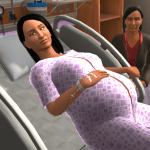 Daanis is in labor with her son Zachary. Students will learn about Daanis’s birth plan preferences and transcultural considerations such as allowing additional family members into the room, and honoring her request to take the placenta home.
Daanis is in labor with her son Zachary. Students will learn about Daanis’s birth plan preferences and transcultural considerations such as allowing additional family members into the room, and honoring her request to take the placenta home.
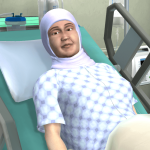 As students care for Fatima before and after surgery, they practice awareness of healthcare considerations that may be important to Muslim patients, including diet, modesty and privacy, touch restriction and consent, and substance use restriction.
As students care for Fatima before and after surgery, they practice awareness of healthcare considerations that may be important to Muslim patients, including diet, modesty and privacy, touch restriction and consent, and substance use restriction.
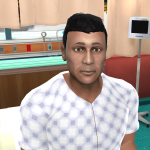 Felipe presents to his primary care provider with a rash. Felipe is in a healthy, happy marriage and has been married to his husband, Marvin, for three years. He is proud of his work as a firefighter, but a recent traumatic episode caused resulting grief.
Felipe presents to his primary care provider with a rash. Felipe is in a healthy, happy marriage and has been married to his husband, Marvin, for three years. He is proud of his work as a firefighter, but a recent traumatic episode caused resulting grief.
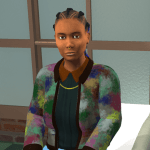 Lupe is a college student who balances a full academic schedule, a work/study job, and vibrant relationships with their friends and family. Students build rapport with Lupe and help them consider the possible cause of their sleep disturbances.
Lupe is a college student who balances a full academic schedule, a work/study job, and vibrant relationships with their friends and family. Students build rapport with Lupe and help them consider the possible cause of their sleep disturbances.
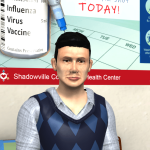 Quan has just received a positive diagnosis of HIV. Students demonstrate cultural humility as they interview Quan, including conducting a review of his sexual history in order to perform partner notification and contact tracing.
Quan has just received a positive diagnosis of HIV. Students demonstrate cultural humility as they interview Quan, including conducting a review of his sexual history in order to perform partner notification and contact tracing.
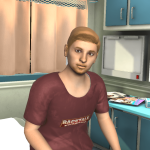 Tanner, a director at a queer theatre company, appears in multiple simulations in which students practice providing trans-affirmative care and develop an understanding of the difficulties trans people face on a daily basis due to unjust bias.
Tanner, a director at a queer theatre company, appears in multiple simulations in which students practice providing trans-affirmative care and develop an understanding of the difficulties trans people face on a daily basis due to unjust bias.
 Xavier last saw a provider 3.5 years ago, at which point he was diagnosed with high blood pressure. Xavier felt this provider was rude and dismissive – potentially due to his race. Students practice building trust and rapport with Xavier as new primary care providers.
Xavier last saw a provider 3.5 years ago, at which point he was diagnosed with high blood pressure. Xavier felt this provider was rude and dismissive – potentially due to his race. Students practice building trust and rapport with Xavier as new primary care providers.
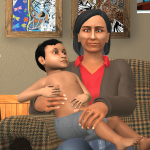 Students provide care for Daanis’s son Zachary at his two-month well visit and later via telehealth when he is 30 months old. In both instances, students continue to practice awareness of cultural specificities and inequities in healthcare.
Students provide care for Daanis’s son Zachary at his two-month well visit and later via telehealth when he is 30 months old. In both instances, students continue to practice awareness of cultural specificities and inequities in healthcare.
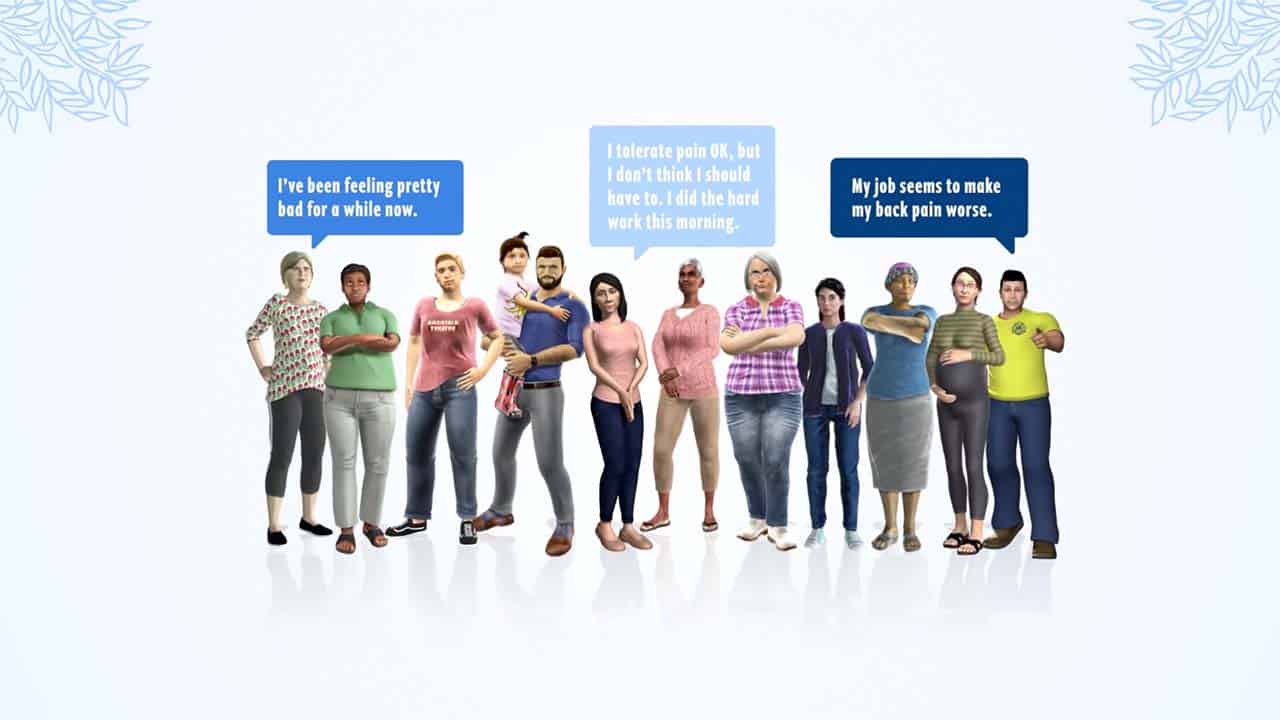
A large team of collaborators creates screen-based simulation offerings—including a cross-functional team of Nurse Educators, Developers, Artists, Technical Sound Designers, Learning Designers, Narrative Designers, Product Managers, and Scrum Managers.
The team prioritizes incorporating optimal learning opportunities for students via realistic conversation and empathy in simulated interactions, making patients virtual human beings who breathe, blink, and have rich and complex histories.
Additionally, Shadow Health partners with external experts and agencies to ensure diverse personas are presented respectfully.
Contributions to and revisions of this piece were done in part with Watson Nelson Consulting, a partner with Shadow Health to ensure matters of diversity, equity, and inclusion are accurately represented with simulation characters. Learn more about Watson Nelson Consulting.
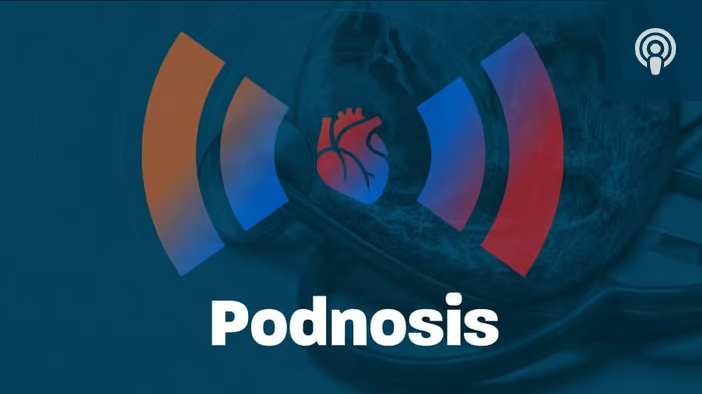
Dr. Misty Wilkie sheds light on health disparities facing Native Americans in the latest episode of Podnosis from Fierce Healthcare.
Learn about her incredible work with Elsevier’s Shadow Health clinical simulations to enhance cultural competency in healthcare and her efforts to uplift American Indian students at the University of Minnesota. Tune in to gain valuable insights: